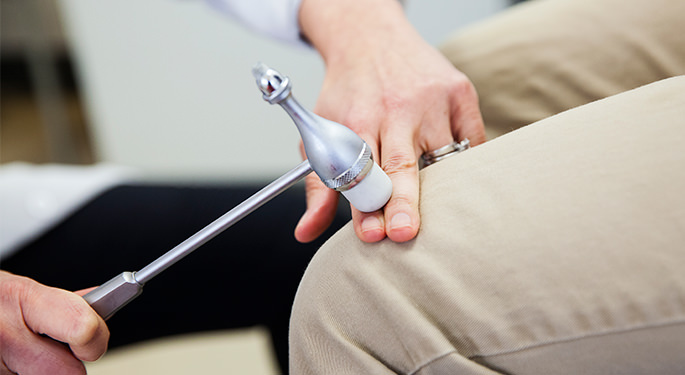Spasticity

Spasticity refers to continuous, involuntary muscle contractions following damage to the brain or spinal cord. These contractions can interfere with movement, speech, gait, and general motor functions, affecting your day-to-day life. Spasticity can occur with brain trauma, cerebral palsy, multiple sclerosis, spinal cord injury, and stroke. It may also occur with some metabolic disorders as well as other medical conditions.
Treatments for Spasticity
Mount Sinai’s neuromuscular specialists are skilled in providing a number of treatments for spasticity:
Rehabilitation therapy: This includes both physical and occupational therapy.
Medications: These include baclofen (oral or via a pump implanted into the spinal canal), diazepam, tizanidine, and clonazepam, which are systemic, so they often carry significant side effects including sleepiness, headache, and nausea.
Surgery: We can perform procedures tohelp release tendons or sever the affected nerve-muscle pathways, but they are invasive, costly, and at times debilitating.
Injections of botulinum toxin: Our faculty are internationally renowned clinicians and research investigators in the field of botulinum toxin in the treatment of spasticity and movement disorders. Also known as Botox, Xeomin, Dysport, and Myobloc, this is an effective, minimally invasive treatment option with a low risk of side effects. The treatment is targeted, thereby avoiding potential complications associated with systemic medications or surgical interventions.